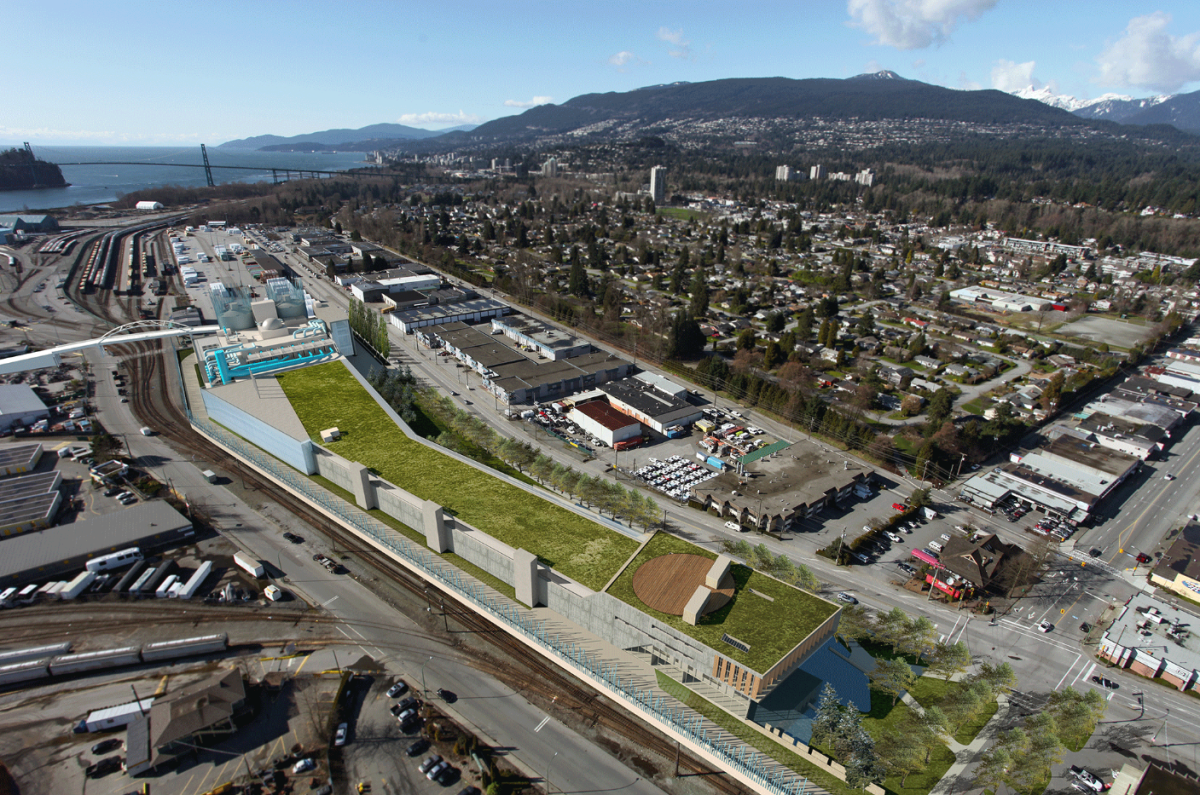The sewage treatment plant located beneath the Lions Gate Bridge in West Vancouver will be relocated to North Vancouver, at a cost of $700 million.

The governments of Canada and B.C. announced joint funding of up to $405 million on Saturday toward the construction of a new Lions Gate Secondary Wastewater Treatment Plant, which will be relocated from the Squamish Nation Reserve to a location in the District of North Vancouver owned by Metro Vancouver.
The remaining $295 million will be paid by Metro Vancouver.
The facility, which serves North and West Vancouver and the Squamish Nation, will conserve and reclaim water within the plan and will include both indoor and outdoor spaces for education and public outreach. It will be built at its new location, at 1311 West 1st Street, to LEED gold standards and reduce greenhouse gas emissions by 75 per cent.
“Once the new Lions Gate Secondary Wastewater Treatment Plant is completed, residents and visitors in Metro Vancouver will benefit from a cleaner water body and ecosystem and a healthier environment,” North Vancouver MP Jonathan Wilkinson said in a news release.
The current facility beneath the Lions Gate Bridge has served the North Shore for the last 55 years. When going across the bridge, travelers can often smell the fumes from the facility below, especially on a warm summer day.
Darrell Mussatto, chair of the utilities committee at Metro Vancouver and mayor of the City of North Vancouver, said the new facility will be constructed with 100 per cent odour containment.
The B.C. government estimates the new site will be completed by December 2020 and create more than 6,500 jobs.
Metro Vancouver says the new facility has been in the works for eight years, but it has been waiting to secure provincial and federal funding for the project, which needs to be completed by the end of 2020 to meet new federal regulations.
The federal government stepped up in March 2016 with a $212 million promise to contribute to the project, but the province stalled on its contribution announcement for at least a year.
A spokesperson for Metro Vancouver said the province’s announcement “comes just under the wire, but enables the project to be completed on schedule and hopefully on budget.”
Mussatto said Saturday’s funding announcement marked the largest amount of infrastructure funding given to Metro Vancouver in its history.
The old facility will be decommissioned in 2021 and turned back over to Squamish Nation. There is no word yet on what the First Nation plans to do with the land, but Mussatto said there are long-term plans for residential development.
Construction is slated to begin this spring.
- Gas prices surge in some parts of Canada. What’s causing pain at the pumps?
- Roll Up To Win? Tim Hortons says $55K boat win email was ‘human error’
- Ontario premier calls cost of gas ‘absolutely disgusting,’ raises price-gouging concerns
- Buzz kill? Gen Z less interested in coffee than older Canadians, survey shows





Comments